Ellen Granberg will be officially inaugurated as the 19th president of George Washington University this week, with events starting Wednesday and continuing into the weekend.
Not only is she the first woman to hold this office at the university, but she is also the first president to openly be a part of the LGBTQ+ community.
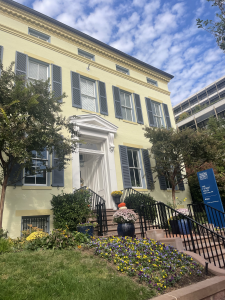
Prior to her role at GW, Granberg served as provost and senior vice president for academic affairs at the Rochester Institute of Technology. She served in similar leadership and administration roles at Clemson University and is a sociology scholar specializing in self, identity, and mental health.
In an interview with the student newspaper The Hatchet last week, Granberg said she plans to spend her remaining first year as president ending the medical faculty associates’ debt crisis, increasing alumni engagement, and bolstering GW’s academic medical enterprise.
Kim Lee, the director of community strategy and engagement at the American Council on Education, a major coordinating body for U.S. higher education institutions, said, “There’s an applause for George Washington and other institutions that have identified women at the helm, but still there is yet more to be done, particularly when you look at the demographics of the student population.”
While the number of female college and university presidents grew from 9.5% in 1986 to 32.8% in 2021, a representative mismatch remains, according to research conducted by ACE. The majority of students at colleges and universities are women, but only a third of the institutions’ presidents are.
“I think that representation plays a really big role in ensuring that women can see themselves in leadership positions so I think that we still have a lot of work to be done in terms of just ensuring that we can create pathways for women to succeed and to ascend in the college presidency,” said Danielle Melidona, a senior analyst at ACE who worked on the American college presidents study.
Search firms will sometimes only include women, or members of other under-represented groups in higher education, in the search pool to appear inclusive or diverse or to meet a quota, Lee said.
This was not the case for Granberg, said Christian Zidouemba, the student member of the GW Presidential Search Committee.
“This search overall was not a diversity hire, it was to pick the best person for the job,” he said.

Zidouemba, a former student body president, said the committee was looking for someone who could meet the university where it was in terms of recent changes and aspirations, and who could advance GW. Granberg was the person who rose to the occasion, he said.
“This also shows that higher education is changing. You don’t have to come from a certain background to lead a university,” he said. “ If you have the knowledge, the background for it, the sky’s the limit.”
Lee said one of the main barriers for women aspiring to higher education positions, especially as university and college presidents, is that they are continuously told they are not prepared and need additional professional development, which is advice men are less likely to hear. Additionally, women are less likely than men to think they are qualified for the job if they do not meet all of the criteria listed in the job description.
“The more emphasis on inclusivity, I think it really will have an impact on the outcomes, particularly for students, for the community,” Lee said.
GW students say they feel represented by having a female president at the school, but so far they don’t know much about her and have not seen much from her in regards to her work at the school.
“We don’t have much interaction with her, she’s a figurehead,” said Kyla Rounsoville, a GW freshman.
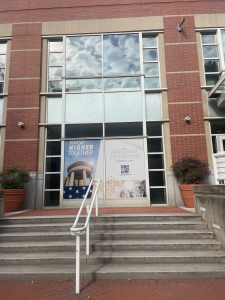
She and Kimaya One-Routier, another GW freshman, said they’ve only seen glimpses of her at large events where she’s giving speeches, so they don’t really know anything about her.
Another first-year student at the university, Samantha Berman, said that while Granberg has only been at GW for a short time, she’s done a decent job, specifically with her handling of an incident on campus this past week. Granberg sent a message to students, parents, and other members of the GW community in response to the images projected on the Estelle and Melvin Gelman library.
Berman said she thought this was the right thing for the president to do.
Several members of Advisory Neighborhood Commission 2A, which represents where GW’s campus is located, met with Granberg in recent months. ANC Commissioner Trupti Patel said it was clear that Granberg wanted to be seen as a resource and as someone who was involved at the beginning of a situation instead of debriefed after.
“I think she wanted to emphasize that she wanted to be engaged with the community, wanted to be seen as a partner,” Patel said.
However, the ANC has not had a true opportunity to work with President Granberg yet.
At the most recent ANC meeting Oct. 18, commissioners Jim Malec, and Dasia Brandy, who represents the GW campus area, also expressed positive sentiments about the new president. Brandy, a senior at GW, introduced a resolution welcoming Granberg into the community. Kevin Days, director of community relations at GW, also spoke at the ANC meeting, inviting the community to join the inauguration festivities.
While Granberg has technically been in office since July, her formal investiture ceremony will be held Friday, Nov. 3 at 11 a.m.

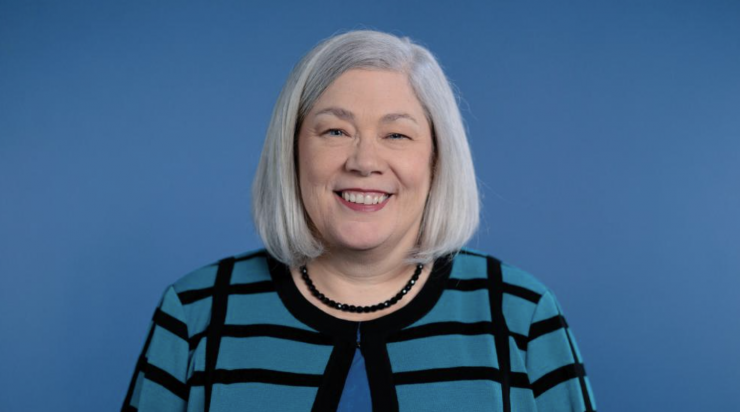
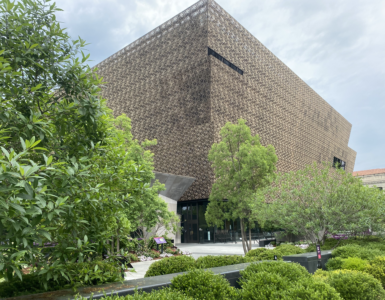
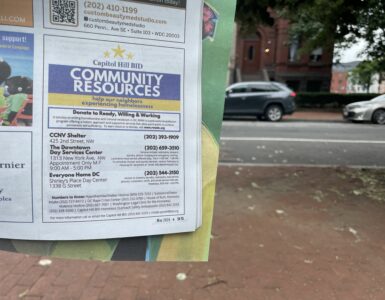
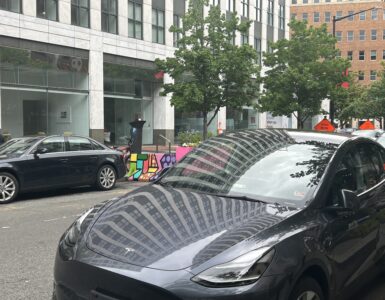










Add comment